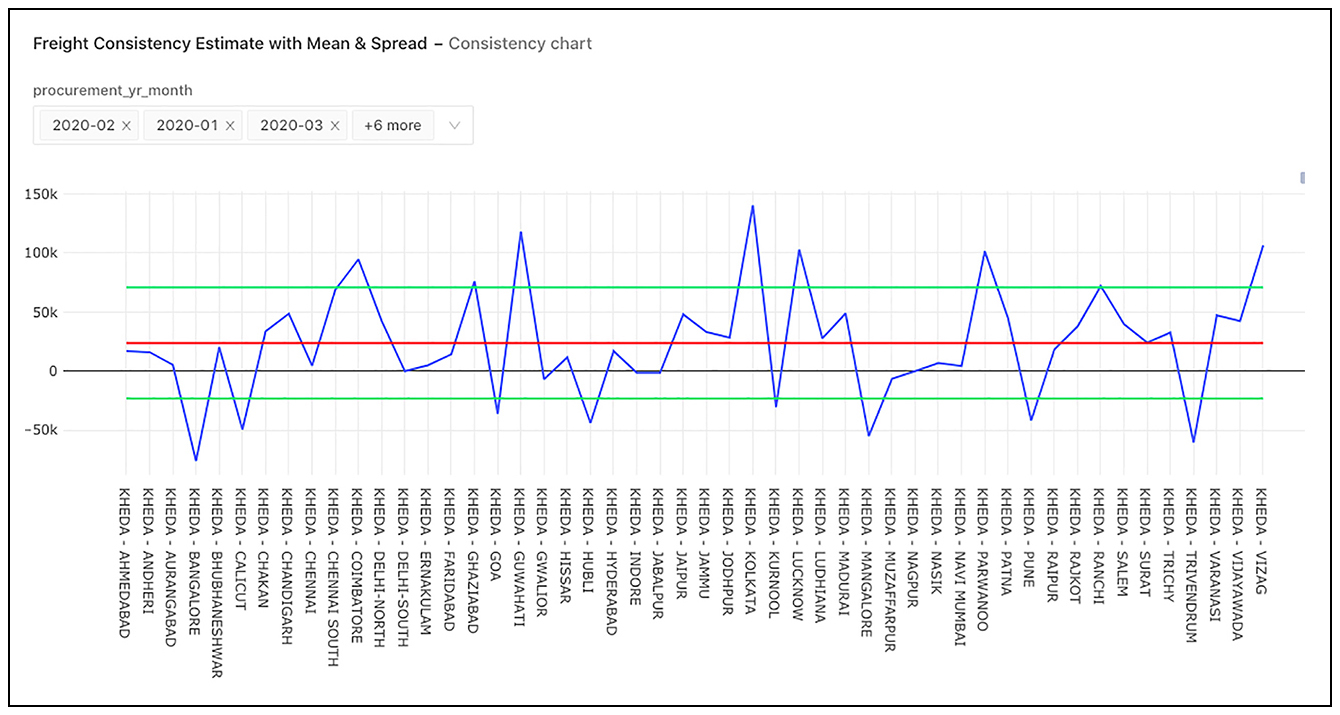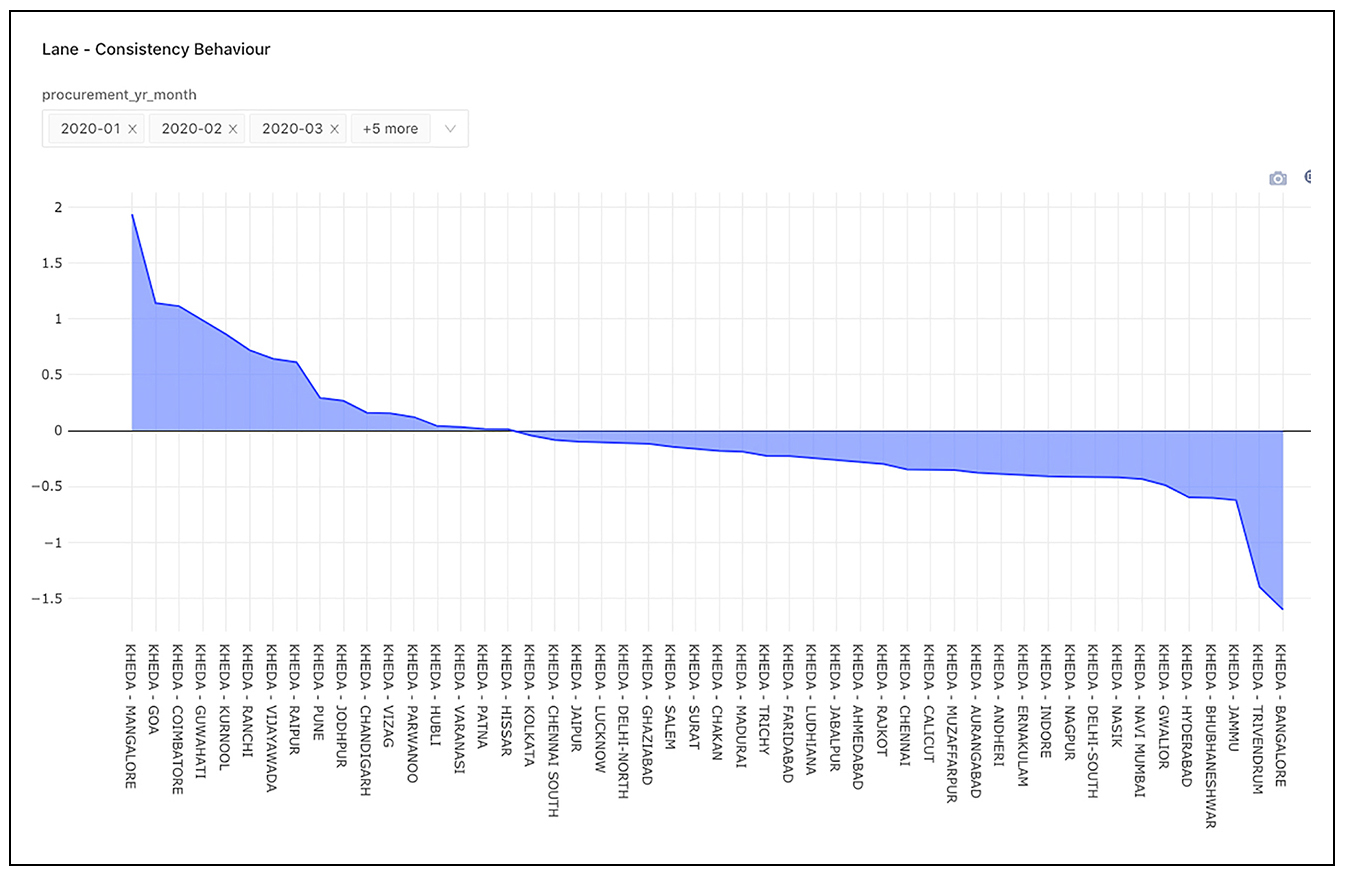In this exclusive article, Rajesh Rajgor speaks to Nitish Rai, Chief Executive Officer (CEO), Manjari Sharma, Chief Product Officer (CPO), and Sandeep Mukhopadhyay, Chief Technology Officer (CTO), founding team of FreightFox, a platform that helps manufacturers procure and manage logistics effectively and efficiently, using insights from own and market freight data

Ideas are easy. It is the implementation that is tough. This is what they say about the start-up world. However, not only have the founders of FreightFox carried on with their idea but have also executed it with promising results. Conceptualized and brought to life during the pandemic, FreightFox was formed in April 2020 and has grown to a team of 10 in a short span of time. It is not the size of the team that is at the focus of this article, but the fledgling group’s vision to assist Industry 4.0 with Logistics 4.0 through a platform that helps manufacturers procure and manage logistics efficiently using insights from manufacturers’ own and market freight data to improve logistics management.
From raw material to warehouse management, supply chain to labour administration, product shipment to information management, everything comes under logistics management. Parallel to this, FreightFox is able to help transport partners, big or small, get access to direct business opportunities with manufacturers while ensuring complete, transparent and fair information availability. Elaborates CEO Nitish Rai: “We are addressing three concerns of the industry – uncertainty, anxiety and information asymmetry which prevails in the entire ecosystem. Freight operations are complex networks of actors who perform different functions and are usually located in different parts, generally isolated. Use of technology, a single source of immutable information, and self-executing contracts could improve transparency, accountability, and efficiency of the current state of operations and make the entire package better and future-ready.”

FreightFox derives insights from the manufacturers’ past and current internal operations data to assess opportunities for improvement and suggest relevant recommendations. It also tries to provide all the available information to the transport partners to make the opportunities as transparent as possible. This not only includes the right payment terms, debit clauses and payment trends but also visibility into a manufacturer’s freight capacity requirements in a better way. “The information asymmetry needs to be dissolved to unleash the latent value from the entire freight eco-system,” asserts Nitish.
Transition for Better
Nitish, who has over a decade of experience in manufacturing and has worked all over the globe with renowned companies like Kirloskar Group, Thermax and Fortum, had an idea about how the supply-chain processes at manufacturers work. He also had dabbled into UdChalo, a defence travel aggregator platform, where he helped significantly scale up the business before starting UdChalo’s defence logistics arm, named PostingChalo. From there, Nitish went on to found FreightFox which is a culmination of his manufacturing and logistics backgrounds.

Freight transportation is not only one of the largest costs within a company’s supply chain but is also typically the most volatile and uncertain. This, coupled with rising fuel costs and need for faster deliveries, has forced companies to use their resources in a more efficient and effective way in order to excel in today’s competitive business environment. CTO Sandeep Mukhopadhyay explains how big data comes into play: “The advent of big data started with an intention to solving the three Vs – volume, velocity and variety of the information/data. But the sub-optimal technology adoption in Indian industrial logistics means we face problems related to a different ‘V’ – verity.”
“For example, inconsistencies/ non-availability of past data results in various problems – mismatches in planned versus actual requirements, vehicle fitment, documentation, etc. In 2019, India became the fifth-largest economy in the world but at the same time it ranks 44th in the Logistics Performance Index (World Bank). So, there is a big gap in the kind of innovation or efficiency that is required in the logistics supply chain currently, and we at FreightFox are building a promising solution addressing that,” Sandeep adds.
Transforming Indian Industrial Logistics
FreightFox delivers and reinforces technology-enabled logistics in order to enable and empower organizations to transition to Industry 4.0. FreightFox not only provides smart automated solutions to handle freight procurement and management in a seamless manner but also enables continuous learning, assessment and course correction that enables manufacturers to easily tweak their logistics operations in line with the ever-changing value delivery models. FreightFox understands that one size fits all approach doesn’t work in Indian industrial logistics and hence, it clearly and carefully addresses specific problems faced by each industry – right from strategy to execution. With the backbone of a strong technology platform, FreightFox is solving the first problem – collating voluminous data.

The second step is to analyse the verity (the accuracy and consistency of data) and third is addressing variety that the data throws. Sandeep says: “Lack of standardization in nomenclature of vehicles in India makes the challenge even harder. For example, each manufacturer might have its own terminology for vehicles, which might be very different to the terminology used by the fleet operators or the market. This means that steep efforts are required to equate and normalize internal data with market understood data.” Within such a short span of time, FreightFox already has active customers from automotive and automotive ancillary, FMCD, FMCG and alcobev segments and is backed by funding of USD 3,00,000 from Angel Investors who themselves have very strong entrepreneurial backgrounds, having created many successful companies.
Accepting Automation The pandemic has reiterated that the age of automation and technology-driven processes are here to stay. “With the advancement of technology and relatively lower cost of adoption, manual logistics processes are a thing of the past. The future is smarter, efficient and next-age logistics that enables newer value delivery models,” reiterates Manjari. Undoubtedly, Indian industrial logistics is ripe for digital transformation! “The manner in which a company designs, procures, and manages its freight transportation network can reduce uncertainty, lower costs, and increase the level of service – and this is what FreightFox is focussed on,” signs off Nitish.
—
We are addressing three concerns of the industry – uncertainty, anxiety and information asymmetry which prevails in the entire ecosystem. Freight operations are complex networks of actors who perform different functions and are usually located in different parts, generally isolated…
– Nitish Rai, CEO, FreightFox
—

“The logistics sector just like many other industries and businesses has been affected by globalization trends. To cope with cost pressures, companies try to revise their business processes, services and operational systems. Specifically, in the transportation business, better utilization of available capacity has proven to be the most effective and efficient way of competitive strategy. FreightFox specifically focuses on these areas. Freight operations today are generating increasingly large and complex data flows. These rapidly growing data volumes, along with relatively easier access to computing power and our data science methods are unveiling new frontiers in freight analytics, generating actionable insights to augment the operational maturity and overcome the uncertainties.
– Manjari Sharma, CPO